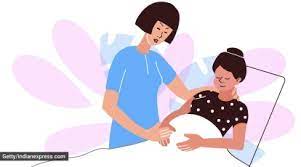Occasionally, the term “insomnia” refers to the existence of polysomnographic evidence of sleep disruption. Long sleep latency, frequent nocturnal awakenings, extended durations of wakefulness during the sleep phase, or even frequent transient arousals are all considered indicators of insomnia. As a result, sleeplessness has been viewed as both a symptom and an indicator.
Acute or protracted conditions are also possible with this illness (chronic). One night to a few weeks is typical for acute insomnia. Insomnia is chronic when it persists for three months or more on at least three evenings per week. The most effective option if you are having trouble falling asleep is the CBD melatonin sleep capsule, for it is effective and FDA-approved. In fact, studies have shown that CBD melatonin, a hormone that the body generates on its signal when it’s time to sleep, interacts in harmony.
INSOMNIA: SYMPTOMS
Insomnia is present if you frequently:
- Have trouble falling asleep.
- Wake up frequently throughout the night.
- Lie awake at night.
- Get up early and find it difficult to fall back down.
- Still exhausted after waking up.
- Despite being exhausted, you have trouble falling asleep during the day.
- Experience daytime fatigue and irritability.
- Find it challenging to concentrate during the day due to fatigue.
10 TIPS TO BEAT INSOMNIA
- Use CBD melatonin capsules, the most popular form of melatonin.
- Limit your screens and gadgets at night, particularly before bed.
- Enjoy a hot bath or shower.
- Before going to sleep, practice meditation.
- Avoid caffeine consumption in the afternoon and evening.
- Exercise or practice yoga before bed.
- Consider using force.
- Follow the 4-7-8 rule.
- Establish a calm environment for sleeping.
- Turn out the lights.
INSOMNIA: TREATMENT
Suppose you are still having trouble beating insomnia. You must go and see a doctor. The doctor may prescribe you sleeping pills. Your physician may also advise behavioral treatment. This can assist you in learning how to improve your insomnia and change the things you do that worsen it. For our bodies and minds to regenerate, we need to sleep. Additionally, it is essential for memory retention and learning.
INSOMNIA: CAUSES
A lot may cause trouble sleeping, like environmental factors such as temperature, light, and noise. According to research, jet lag, new shift at work, and bad habits you developed when you previously experienced sleep issues or other changes to your sleep pattern. Your ancestry, having a propensity for sleeplessness, may run in families.
The most typical root causes are:
- Substances used recreationally, such as cocaine or ecstasy, alcohol, caffeine, or nicotine.
- Tension, worry, or despair.
- Noise
- An uncomfortably hot or cold room.
- And uncomfortable beds.
- Other sleeping conditions, such as sleep apnea or restless legs syndrome
- Dementias such as Alzheimer’s and others
- ADHD
- Both menopause and PMS
- Pregnancy
Why is insomnia a disorder, and how does that happen? An illness with unfavorable outcomes is referred to as a disorder, and it’s vital to note that these outcomes aren’t the condition’s natural outcome but rather a pathological reaction to the illness. The effects of insomnia cannot just be the expected result of sleep deprivation in the context of this topic.
INSOMNIA: PREVENTION
Avoid eating a large meal at night; engage in physical activity at least four hours before bed; avoid using electronics like cell phones immediately before bed. Avoid taking a snooze during the day, and drive carefully if you feel sleepy.
Keep to your usual sleeping hours and avoid waking up early after a stormy night’s sleep.
One of the best things to prevent Insomnia is having the proper nutrition for your body. Your ability to sleep well may also be influenced by what you eat and drink. Eating a balanced diet has several advantages, but avoid eating a substantial meal before bed.





